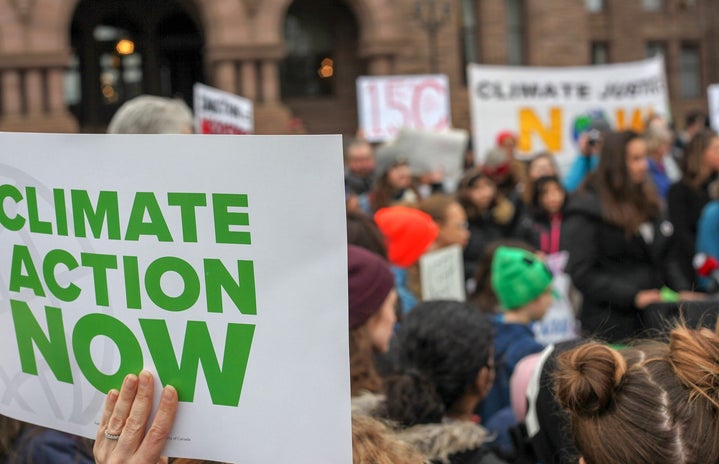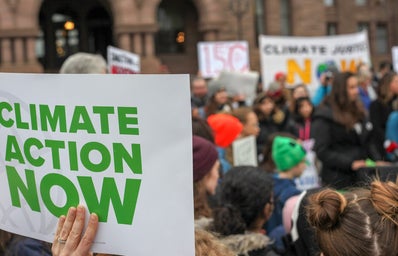According to the United Nations climate change refers to “long-term shifts in temperature and weather patterns [which] these shifts may be natural”, however “since the 1800s human activities have been the main driver of climate change”. This comes as no surprise as with rapid population growth since the 1800s, this has led to an increase in consumption and in turn resulting in increasing emission of greenhouse gases. While politicians such as Donald Trump vehemently deny climate related issues, recent examples like the floods in Pakistan and South Korea and the unexpected rise in temperature in Africa’s already scorching climate, make the impact of climate change on our society quite apparent. This urgency to tackle the aforementioned issues is especially felt by the mounting and escalating due to these very issues, especially in underdeveloped countries.
For many living in these countries, they rely heavily on climate-based activities to make a living. About 2.5 billion people residing in low and middle income countries depend on agriculture and fishing to have their basic necessities met. The worryingly increasing number of crop failures and loss of livestocks due to climate change will only lead to a further drop in standard of living for these communities who are already living in poverty. In turn, this will affect their ability to buy staple items to feed themselves, which will lead to malnutrition, and in the worst case scenario death. While there are local, regional and global non-governmental organisations that supply food for these regions, rising temperatures will negatively affect food transportation. Additionally climate change has also affected water and sanitation systems which are crucial for citizens to get clean drinking water. The lack of clean water for consumption means that these communities will be left with no option but to consume unsanitary water which can and will lead to water-borne diseases.
However one of the most obvious and distressing outcomes of climate change is the loss of homes and subsequent displacement of these communities. In the recent Pakistan floods, close to 8 million Pakistanis have been displaced. Even though the relevant authorities are providing assistance for these groups of people, Gerida Birukila, who is the UN Children’s Fund (UNICEF) Pakistan Chief of Field Office in Balochistan, proclaims that there is a lack of resources – shelter, food and water. Moreover, she also notes that roads and bridges that are used to enter these communities have been destroyed by the floods. This means that life saving resources are not able to get to these communities in time, which in life threatening situations, can lead to unfavourable outcomes. With that being said, what then is the solution to ensure that climate change issues are dealt with effectively and efficiently? The answer is education.
While the short term methods to deal with the aftereffects of climate change are donations and providing resources for affected groups, the long term method is educating people, especially students, on the devastating impact of climate change. Firstly, from young, people should be educated on the catastrophic impact of climate change. This helps to foster a sense of personal connection that they will have towards tackling climate change. Most students around the world spend the majority of their days in school. As such, schools play a critical role in teaching the leaders of tomorrow on the importance of tackling climate related issues seriously. By getting students invested in such issues, this will lead them to perhaps take up related majors and conduct research to find solutions to address climate change when they reach tertiary education. Additionally, universities need to partner with industry experts and put more resources into climate change related research. The United Nations have and continue to partner with various universities in their UN Climate Change and Universities Partnership Programme. The programme, which is coordinated by the Nairobi work programme (NWP), is a wonderful opportunity for graduate students to work closely with industry experts, locally, regionally and globally, to address knowledge gaps that remains a critical barrier to countries implementing adaptation measures. Companies should also be educated about such issues and implement policies that would help to combat climate related issues. In fact within the recent decades, many companies such as the Union Bank of Switzerland pledged themselves on “reducing [their] greenhouse gas emissions in priority sectors where the bank can have the most significant impact” and “reduce the carbon footprint of its loan book across three sectors that account for a sizable share (43%) of its credit portfolio and financed emissions: fossil fuels, power generation and real estate”. Though it remains to be seen on how many of these companies truly remain committed to such goals, it is at least a step in the right direction. Ultimately, as citizens of this global world we should and need to be active in protecting the only home we have ever known in order to ensure a brighter future for generations to come.
Below are some of the organisations you can donate to help countries and ecosystems affected by climate change:


